Dizziness (Vertigo) and balance disorder
If people are plagued by the dizziness, do you feel that the soil varies, everything revolves, or the wegsackt ground beneath them. According to the descriptions of Affected dizziness is associated mostly with the sensation of imbalance and insecurity, and may, for example, as vertigo, or more diffusely perceived. The causes and the accompanying symptoms of dizziness are many and varied. The spontaneous onset, paroxysm occurring or permanently persistent dizziness has not always its cause in the sense of balance. Other causes of vertigo are usually benign and various forms of therapy accessible.
Table of contents
The most important facts to dizziness
- Dizziness may, in addition to a disturbance of vestibular function a lot of reasons.
- The dizziness may be spontaneous, occur paroxysmally, or permanently.
- Dizziness is the second most frequently mentioned Symptom of patients.
- There are several forms of dizziness.
- Through the prevention and treatment of the causes of vertigo can disappear.
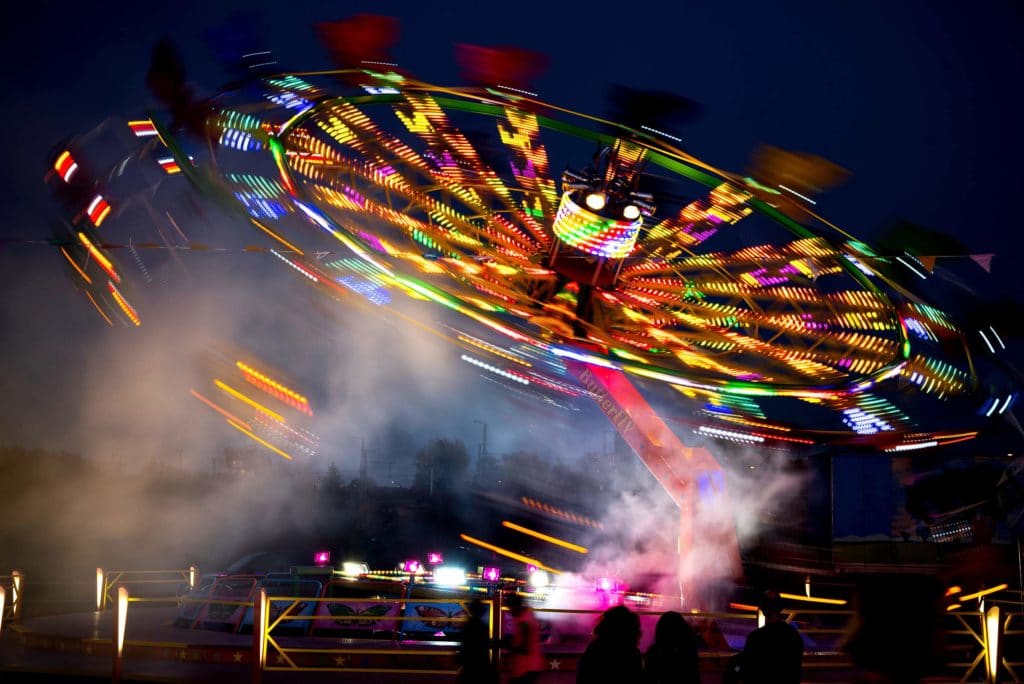
Forms of vertigo
Vertigo is typically classified according to different criteria, for example
- according to the subjective perception,
- according to the duration,
- to trigger
- or according to the origin of the complaints.
Of course, you will not find the symptoms in practice, always clearly separated, mixed forms, and Transitions occur. The various forms of fraud are defined by their causes and the specific way in which it manifests itself in the Affected.
Systematic Dizziness
The following forms of fraud will be referred to as a systematic dizziness. The cause for the systematic vertigo is usually a disturbance or Irritation of vestibular function:
- Vertigo
You know the feeling you have when you get out, for example, after a quick ride? The vertigo feels like. - Vertigo
Speaking of vertigo, when the ground seems to move under your feet, how it rides after a long boat physiologically occurs. - Lift dizziness
Here, the Affected have the feeling of an upward and downward movement of the environment, as they are from trips with lifts known.
Unsystematic Dizziness
The non-systematic vertigo, the illusory movement of the environment are less clear. Under the term of diffuse dizziness different sensations are grouped together, such as, for example:
- Feeling empty and Turning in the head,
- Blurred vision,
- Flicker and Black before the eyes,
- Nausea seizures,
- Unsteadiness of gait,
- Weakness, seizures,
- the threat of fainting or dizziness
- and unreality feeling.
Usually he comes with Dizziness, which arise outside of the equilibrium organ.
In addition to the described perceptions of the case, the inclinations are in directions, eye tremor (Nystagmus), as well as a series of vegetative symptoms such as Nausea and vomiting, sweating, palpitations and anxiety. Due to the variety of additional symptoms, the speech is from a dizziness syndrome.
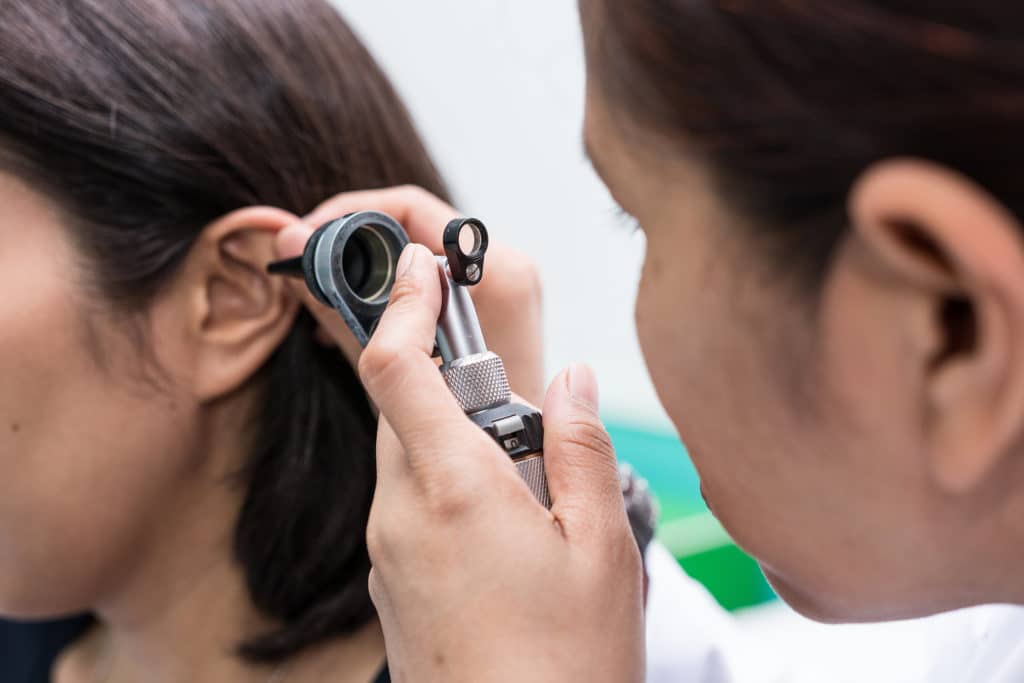
Causes and triggers
To Orient our body in space, needs to handle the Central nervous system sensory stimuli and coordinate, which will come in from the organ of balance (vestibular apparatus) in the inner ear, the eyes and receptors of the muscles and Tendons, and the respective needs (rest, exercise, change of Position). Many people are the effect of a Irritation of this processing as motion sickness (travel sickness) or Altitude well-known. The complaints can also arise as a side effect of medication, alcohol or drug use. Not least of all, organic and functional disorders in circumscribed areas lead to dizziness, such as Stress, anxiety and mental imbalance.
Cause in the balance of the apparatus
The balance organ in the inner ear consists of atrial maze arc apparatus and the vestibulärem portion of the VIII cranial nerve (vestibulocochlear nerve). For a number of vertigo syndromes, it is considered as a cause of a disturbed sense of balance. Are damaged the peripheral of the shares from the Labyrinth or nerve, and the dizziness is triggered by head movements or storage exchange, can be the discomfort, for example, a sign of frequent but benign positional vertigo (BPPV), or a Symptom of Meniere’s disease, a disease that is accompanied by dizziness and ringing in the ears (Tinnitus). However, bacterial or viral inflammation caused by, for example, the structures of the inner ear (Labyrinthitis) or the Gleichgewichtsnervs (Neuritis), Herpes Zoster infection in the ear, and a heart attack in the maze come as the cause in question. Lesions of Central nerves or of the cerebral cortex can also lead to (especially systematic) dizziness. Furthermore, it is to be noted sometimes in the context of migraine, multiple sclerosis, acute circulatory disorder in the brain (TIA), poisoning or tumors (acoustic neuroma).
VR-disease
A special Form of motion sickness, VR sickness, or VR Motion Sickness. There are modern PC, console and mobile games, but also for professional applications, is perceived to be where the action is not on a conventional Monitor, but by means of a Virtual Reality glasses, short VR-glasses. With this, it is the Users possible to interact in a 3D environment virtual. For Some it comes as a result to symptoms such as dizziness, Nausea and disorientation. These symptoms disappear after a short time of alone.
It is believed that these symptoms are caused by the discrepancy between the movements, which are mediated by the brain visually, but not through the sense of balance. As a result, the VR-disease plays a special role. Although the equilibrium is the sense of and responsible for the symptoms, but it is not a fault of the same. Many get used after some time in the VR world and the symptoms of VR sickness. In the other hand, these symptoms are a result of any use again.
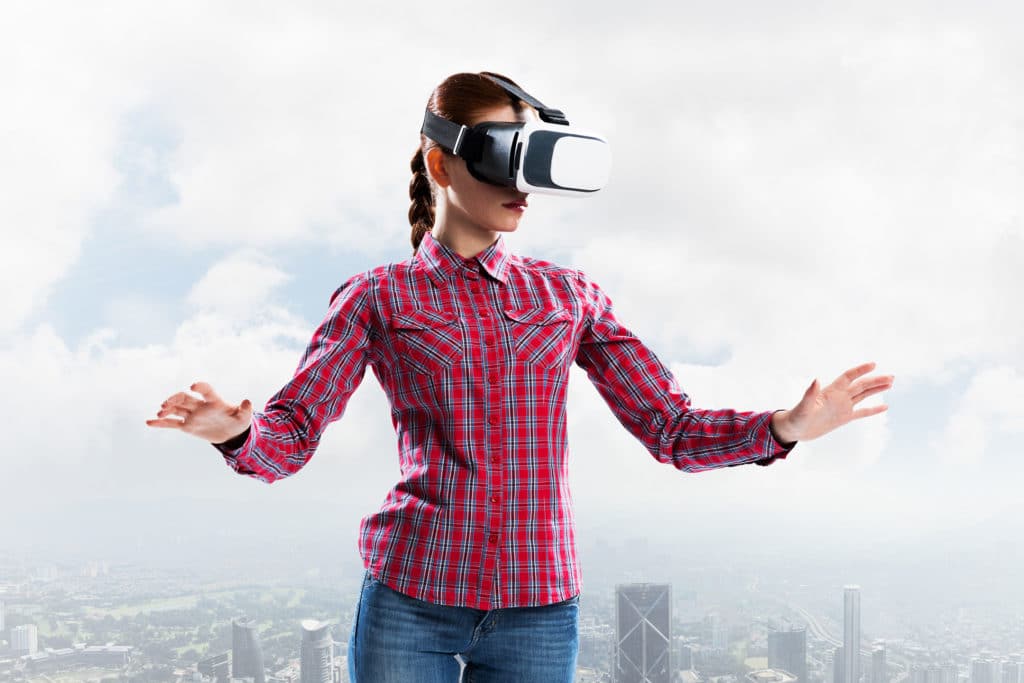
Cause outside of sense of balance
In the case of dizziness, with a cause outside of sense of balance (non-vestibular dizziness) may be the origin in the various organs and functional areas. In the case of blood poverty (anemia) is, for example, an under-supply with oxygen, which can lead to dizziness. In addition, vitamin deficiency, hypoglycaemia, Hyperventilation and low blood pressure with dizziness symptoms are to be considered directly causal to the Rise and possible sensitivity to weather.
In the area of the head, disturbances of vision, are eligible to continue, such as, for example, latent Squint, a reduced blood supply to the brain due to calcification processes, epilepsy or head injuries. A significant role of cervical vertigo, whose origin is to be found in the area of the cervical spine is certainly.
Dizziness and cervical spine
The so-called cervical vertigo, the presumption of a link between the dizziness and the neck consists of the vertebral column. If there are other structural causes are ruled out, so is now referred to frequently in conventional medicine, operating on other methods, such as osteopathy, chiropractic or Rolfing, the fabric qualities and the use of the body in everyday life, in diagnosis and treatment involve.
It is in osteopathy in the muscles at the back of the head is equal to weight receptors could sit, which can be disconnected in case of a hard tension of these muscles and dizziness trigger. In Rolfing, the statics of the whole organism is taken into account to ensure an adequate complaint-free operation without dizziness. Underlying these concepts is that of balance for the human organism, can also be the ratio from the head to the body. If this is disturbed or inharmonious, there may come, therefore, to complaints. Therefore, in the diagnoses, not necessarily with the dizziness cohesive, recognizable symptoms, such as, for example,
- Neck tension,
- stiff neck,
- Pain on shoulder blade,
- Shoulder stab
- or a headache at the back of the head asked.
Structural representatives from the medical operation suggest that the connection between the cervical spine and dizziness rather degenerative processes of the cervical vertebrae as a cause. Due to this, there are restrictions on movement, blood supply and nerve conduction problems, and, therefore, the function restrictions of the balance organs.
Dizziness by head movements
The statistics after the Occurrence of dizziness is the most common in the context of a so-called benign paroxysmal positional vertigo (BPPV). It may come with certain movements or change in Position, a spontaneous rotational vertigo attacks, which are very unpleasant, but harmless. This is due to small stones, which are located in the inner ear and to clump together sometimes larger structures. In the case of certain movements, especially of the head, can achieve this now with the lymphatic fluid of unfavorable positions and result in dizziness. Different bearing exercises help to prevent or to stop it at an early stage after the start. Alternative doctors see a possible connection with the diet of the Affected. More on this in the section on diet as a trigger.
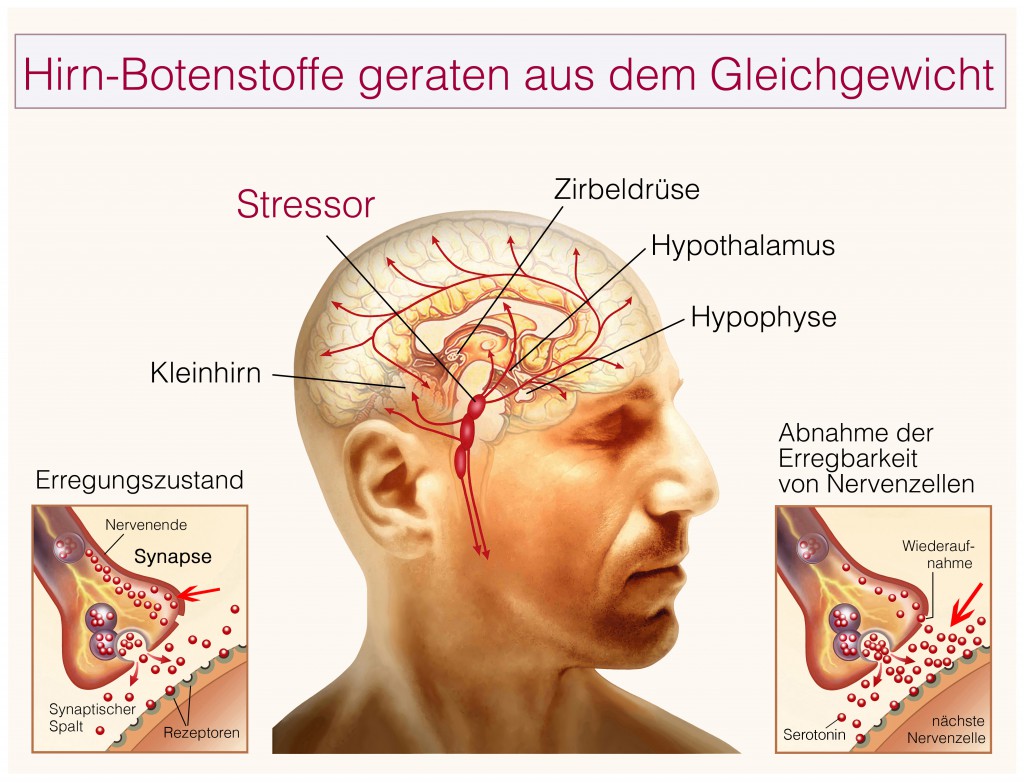
Psychogenic Dizziness
Dizziness can occur in the context of many mental disorders, for example Depressive syndrome, Pyschosen and especially in the case of anxiety disorders. A fear of heights and other specific phobias, such as agoraphobia with or without panic attacks often go hand in hand with dizziness that is usually described as a diffuse and unsystematic dizziness. Often it takes a very long time, until a psychogenic accepted cause of be Concerned. After all organic causes have been excluded, is often pronounced with the medical diagnosis of “phobic postural vertigo”, the recommendation for psychotherapy.
Age dizziness
The probability to suffer from dizziness, and increases significantly with age. There is information according to which between 40 and 50 per cent of over 75 Year olds affected. Very often no clear organic cause for the Occurrence of dizziness is found in old age. Probably various age-related factors favouring dizziness symptoms. These include, for example,
- Heart weakness,
- Heart stumble, and heart rhythm disorders,
- Fluctuations in blood pressure,
- Circulatory disorders (especially of the brain and ears),
- Disturbances of vision,
- Ear diseases,
- Blood Poverty (Anemia),
- strong fluctuations in blood sugar levels
- and dehydration may occur.
Older people will feel thirsty is usually always less, drink too little and are thus at risk of internal dehydration. The older process is to be done, so that the elderly do not want to have their limitations, for example, by dizziness true and ignore it. To avoid falls, use a suitable tool, such as, for example, a Rollator is, therefore, useful. Regular balance exercises, a vitamin-rich alkaline diet and adequate hydration can stop the dizziness development. From the Natural medicine supplements are recommended Ginkgo biloba as well as physical water applications, such as, for example, Gesichtsgüsse.
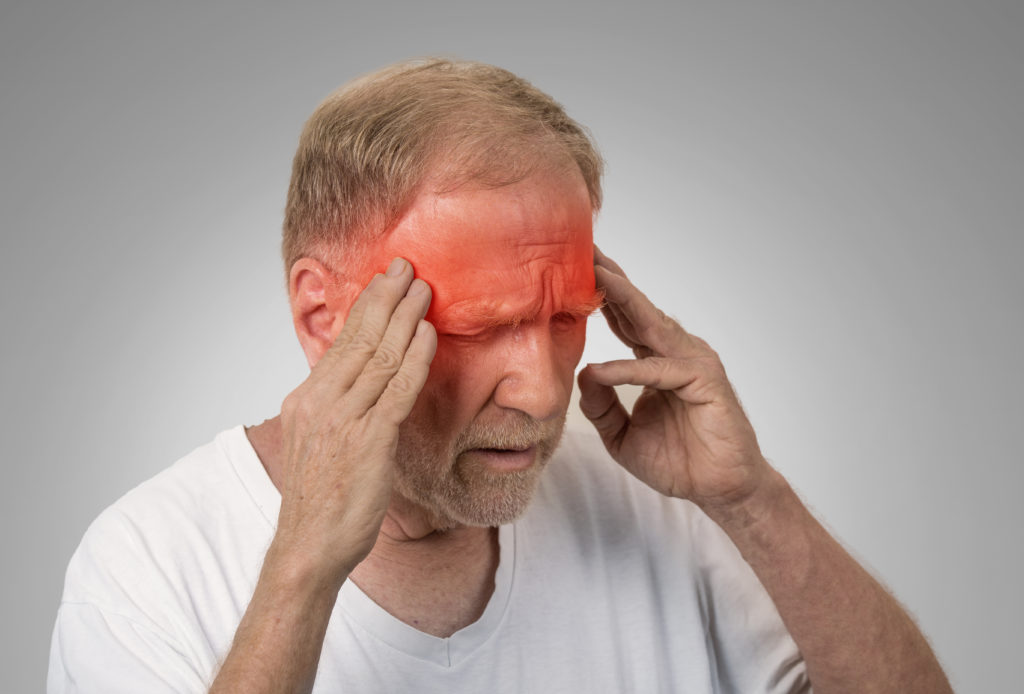
Food as a trigger
Alternatively, the medical the diet as a trigger or important factor in the development of vertigo syndromes will be discussed. Especially electrolytes, in particular sodium chloride, potassium, calcium, Magnesium and phosphate should also play a role. The endolymph, a fluid in the Ohrgängen important tasks, can be changed via the diet in their mineral composition and, under certain circumstances, the function of the vestibular function affect. In addition, food intolerances and food allergies are suspected, dizziness trigger, because individual outlet try and leave out the suspected allergens, the symptoms improved. As a preventive measure, in principle, an alkaline diet should be preferred, especially if there have been any complaints.
Therapy
Symptoms persist for a long time or recurrent, should be first of all medically – and specifying a specialist by a physician, for example, in a practice for ear-nose-throat (ENT), neurology, or cardiology – be clarified. In the case of strong dizziness attack emergency medical aid – is; not least because of the possibility of a stroke – makes sense.
Conventional drug treatment is according to anamnesis and diagnosis to therapy of the underlying disease and for the symptomatic relief of vertigo in the foreground, for example, with dimenhydrinate or Pentoxyfellin. Storage dizziness different storage show exercises, however, are more successful. Therapy is initially worked mostly with behavior therapy, or deep psychological process, but can be by arrangement through alternative methods complemented.
Self-help by avoiding
If the cause for the dizziness is known, such as, for example, a food allergen, alcohol, or drugs, it is important to avoid these substances. Tends to anyone who rides in the Carousel, long-lasting dizziness, should not use such rides. Similarly, the use of VR should be restricted eyeglasses, when it comes to dizziness.
Naturopathy
Especially in the case of chronic symptoms, natural remedies can provide improvement. Depending on the cause for dizziness, acupuncture, ear candling (also help with cold and Stress) and procedures to be used according to Kneipp. In the case of involvement of the cervical spine, manual therapy, Rolfing, osteopathy or craniosacral therapy.
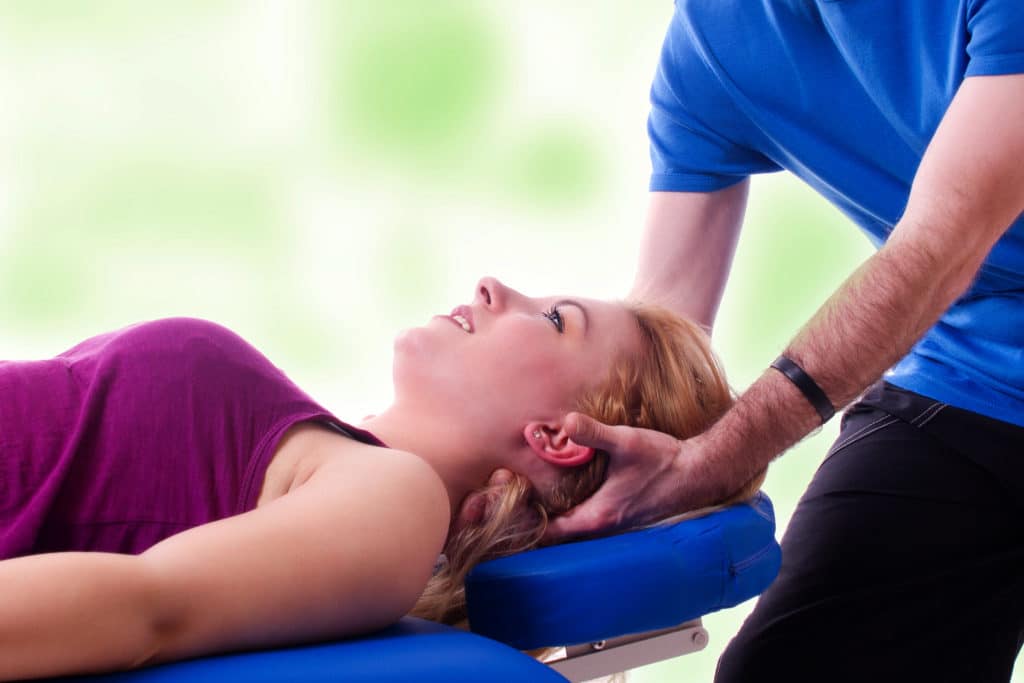
Stress and psychogenic cause, for example, can:
- Yoga,
- Meditation,
- Progressive Muscle Relaxation,
- Hypnosis therapy,
- Psycho-kinesiology,
- Acupressure
- or autogenic Training
Remedy, to the Affected gain “on solid ground” and “Stop”.
Especially in the case of age, dizziness is often Phytotherapy can be used with Ginkgo extracts.
Homeopathic Methods
Dizziness with motion sickness can be treated with ear acupuncture and homeopathically prepared Kokkelskörnern (Coccolus). Bach flowers can also be used and other homeopathic remedies are in use, such as, for example, Aurum, Viscum album and Tabaccume, the application of which should ideally be preceded by an individual’s professional medical history. (jvs, ok; updated 28.12.2018)
